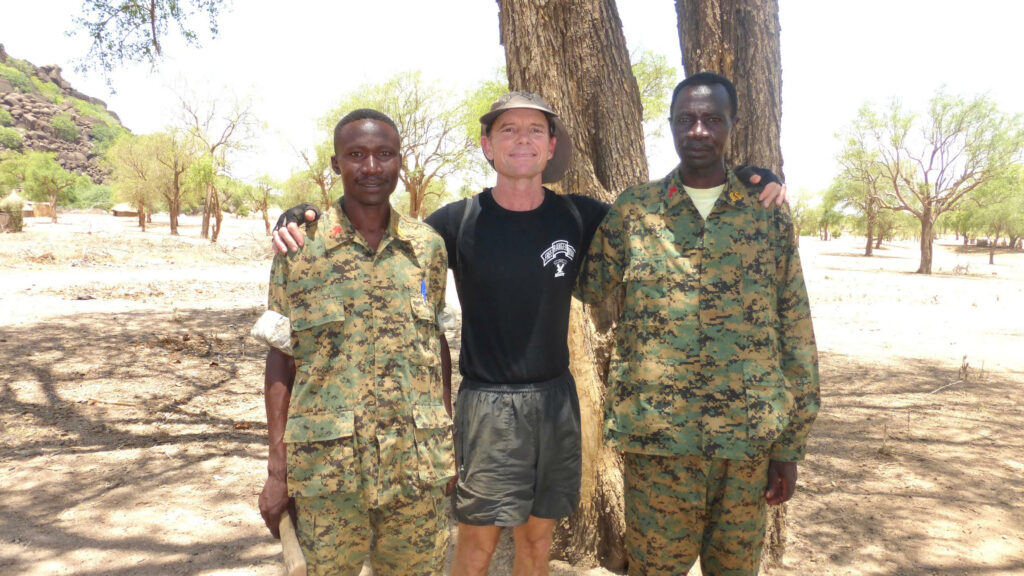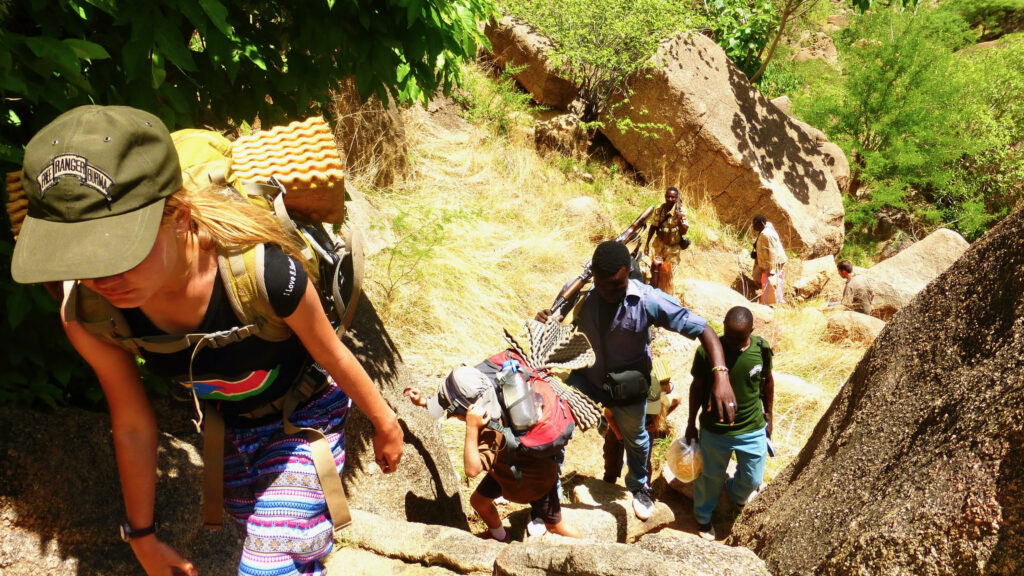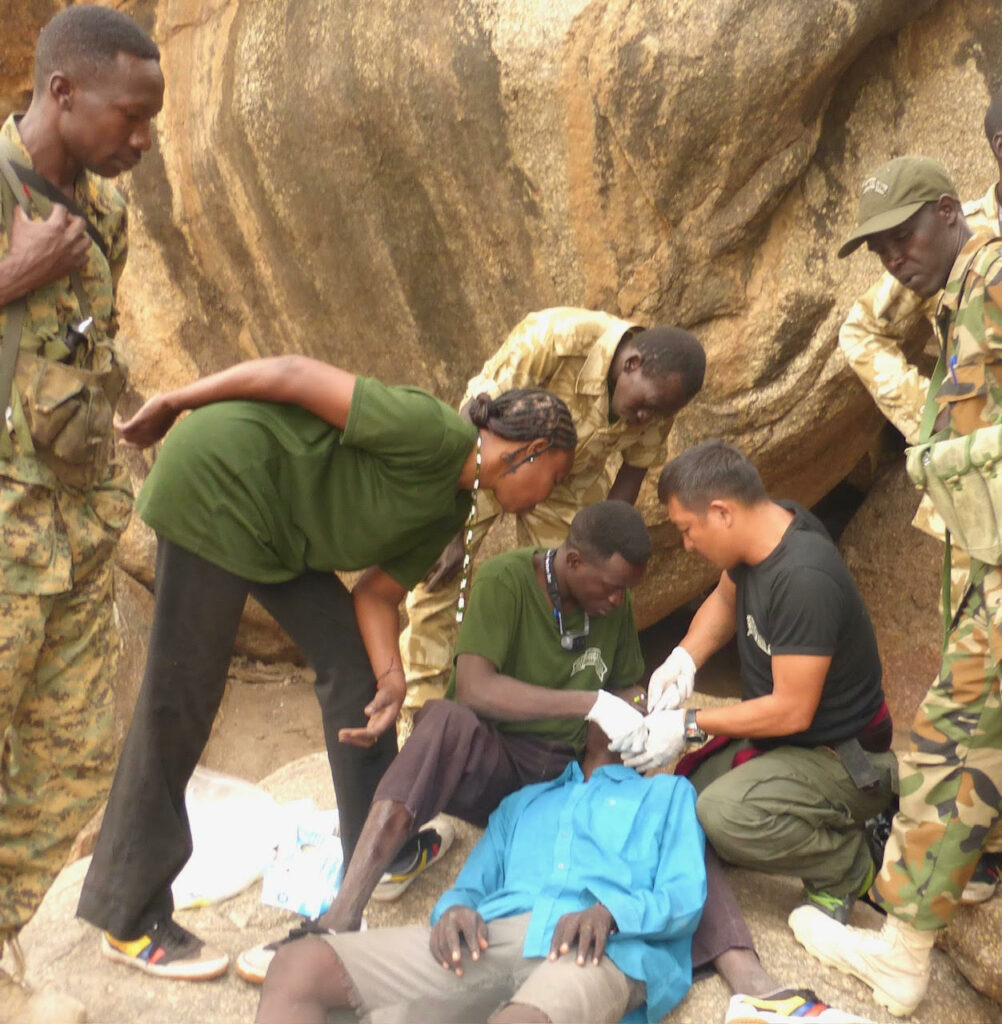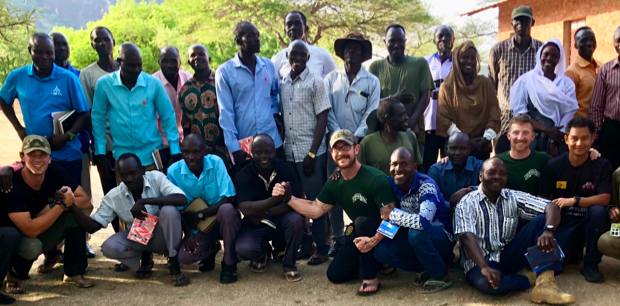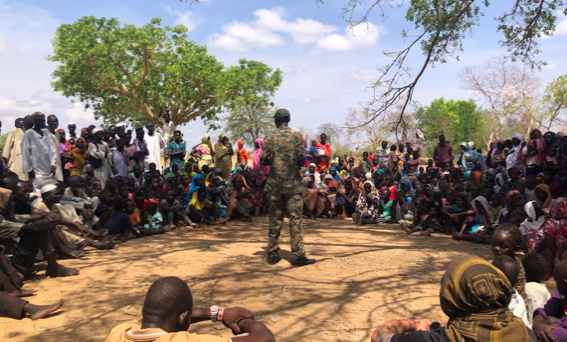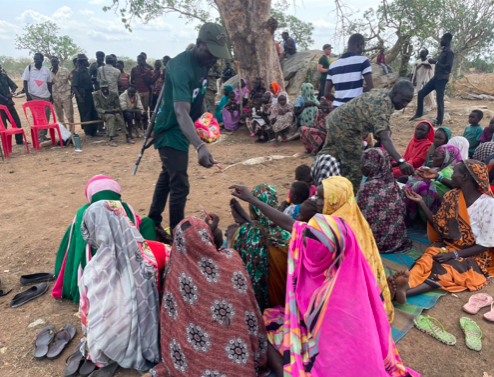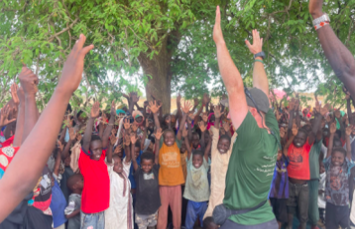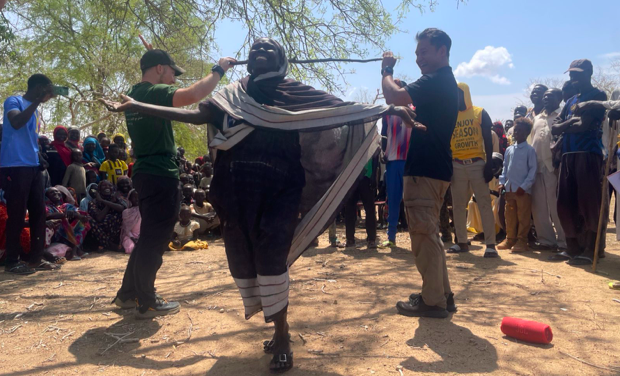Radical Forgiveness and Generosity in Sudan
17 July 2025
Dellame County, Nuba Mountains
Since 2023, a brutal civil war between rival military factions in Sudan has displaced 1roughly 14.5 million people. At times, these factions have set different segments of the population against each other; for example, people of half-Arab ethnicity have been used against the Nuba people. Last year, the Sudanese government stopped supporting many half-Arab people because, as one IDP put it, “We are not full Arab.” Fighting broke out and at least 1.5 million half-Arabs were forced to find help and refuge anywhere they could find it. That “anywhere” has turned out to be in the Nuba Mountains with the very Nuba people whom they once oppressed. 2In the last 12 months, at least 1.5 million Internally Displaced People (IDP) have come to the Nuba Mountains seeking refuge and respite from the oppressive Sudanese government.
In 2014 Dave Eubank, his family, and a small group of Karen Free Burma Rangers responded to a call for help and needed relief training in the Nuba Mountain region. Not long after arrival, oppressive Sudanese Omar al-Bashir’s forces pushed through to the FBR team’s location, where schools and churches were turned to rubble and entire communities hid in caves. Al-Bashir’s forces were attacking fellow Muslims who did not believe exactly as they did and were trying to gain complete control over local resources. The locals fled to defendable ground in the mountains. FBR fled with them, and then stood with them, to record what was going on and get the news out.
Then, the team provided Good Life Club programs and medical care, as well as training for Nuba Ranger teams in FBR topics such as first aid, navigation, and documentation, while encouraging their faith and showing them they were not alone. To this day, dozens of key leaders speak of their memories with Dave and family, Monkey, Eliya, and Ray Kaw. In June of 2025, FBR sent another team to the Nuba Mountains of Sudan, to help those caught up in the current conflict.
Dellame County is an area in the northeast part of the Nuba Mountain region, and serves as one of the many entry points for IDPs who arrive after fleeing from the SAF-controlled areas. 1In June 2025, when our Free Burma Ranger (FBR) team was in the Nuba Mountains, at least 178,000 new IDPs arrived in Dellame County. Our FBR team and local chaplains from the Nuba Mountains had the opportunity to conduct a Good Life Club (GLC) at Mardes and Al-Hilu IDP camps on June 18-19, 2025.
The Nuban chaplains shared about Jesus’ love for the IDPs, and the forgiveness of sins that God offers to everyone. Many of these chaplains are Christian leaders and part of the regional decision making bodies. They reinforced the message that the Nuba people forgive the IDPs for any part the IDPs had in the oppression imposed on the Nuba people. The Nuba people welcome IDPs with the best hospitality they are able to offer, given their own meager resources. The chaplains reiterated that what the Nuba people have to offer is forgiveness and land if the people want to settle, farm, and contribute to the society that fosters religious freedom, forgiveness, hospitality, and generosity.
The IDPs who had just arrived received the offer of forgiveness and land with amazement, warm smiles, and a grateful attitude. They were also amazed when one of our FBR team members, Kittikoon, an ethnic Karen from Burma, gave a devotional about his journey in learning to forgive the Burma Army for continued violence and oppression against the ethnic minorities in Burma. Kittikoon shared with the IDPs how he feels like he can relate to them, since his people are oppressed by the Burma Army in a very similar manner to how the SAF are oppressing the IDPs in Nuba.
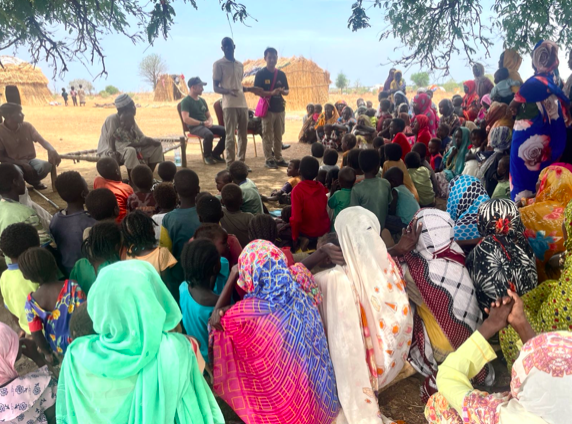
The message of God’s unconditional love for the IDPs as both individuals and a people group was also shared. A moment of collective warmth and love was felt when one FBR team member pointed at each individual and then addressed the group by stating, “God loves each and everyone of you as individuals and as a people group.”
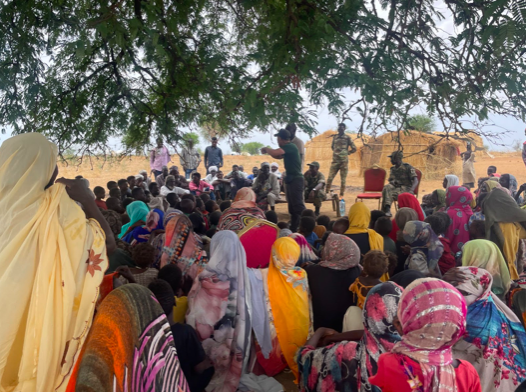
The IDPs and Nuba locals asked what the requirements were to join FBR, and were told: “You can be of any faith to join, but there are three requirements. Firstly, you have to do what you do out of love. Secondly, you have to be able to read and write in one language so that you can communicate with others effectively. Thirdly, if the people you are serving cannot run, then you cannot run.”
Additionally, during the GLCs, a needs assessment was completed, games were played, and IDPs shared stories from their experiences. Training was also provided on mental, emotional, and spiritual trauma, healing, medical first aid, steps to reduce or stop the spread of a local cholera outbreak, safe water-use practices, techniques for evacuating wounded individuals, and decision making under stress.
One elderly woman in the newest IDP camp in Mardes, Dellame County, shared that the reason why the crowd was 80% women and children is because most of their husbands had been killed by the SAF.
An 86-year-old woman expanded by saying, “The Sudanese government told us to go to one place, and that we would get help there. We went there, and that place told us they would not help us, and to go to another place. That other place told us to go someplace else. This happened five or six times. We finally came south to the Nuba mountains. The Sudanese government told us not to come here. The Sudanese government told us the Nuba people would never forgive us, and that there is nothing for us here. We were told we would be oppressed here. We have been met with love and forgiveness. They have been generous with us. They are giving us land. We found that they are fighting for religious freedom and for the exact freedom that we are looking for. We thank you for coming and loving us. You have put a smile on our face after fleeing for two years.”
Another meaningful interaction at the Mardes camp came when IDPs offered a cup of tea to our FBR team. Just that morning, the Mardes camp’s well had broken, and it would take a long time before it could get fixed. The day was hot and getting hotter. There was already very little water. The IDPs’ gesture of offering tea was truly generous and selfless from people who literally only had the clothes on their backs and the children in their arms.
Our FBR team was moved by the generosity. We accepted some tea and regifted the rest to one of the elderly women who had shared some of the tragic context for why there were so few men in the crowd. We were told the men had been killed. At first, the elderly woman declined our tea offering, but the younger women and crowd insisted she accept the tea as a gift, recognizing it was all our FBR team had to offer in this remote, dry, and desolate location. An atmosphere of mutual respect and love blossomed in that moment. There were tears of gratitude in the beauty of the moment. Our FBR team and chaplains also prayed with the IDPs for a healthy rainy season, good crop growth, and water.
While reflecting on the tea event with one of our local Nuban FBR partners, we were told he believes the IDPs recognize, and are taking to heart, the values of hospitality and generosity that the Nuba people hold so dearly. He was reminded of Luke 21:1-4 and Mark 12:41-44, where the widow gave out of her lack.
The Nuban chaplains, teachers, and leaders who work with the IDPs are volunteers who have families, and in some cases, farms of their own. In a land where there is very little money and great need, a mindset of helping the need, no matter what it is, is demonstrated.
Common needs and requests made at the IDP camp were for tarps, food, and water. Women also asked for opportunities for education and to learn English. Both camps requested a local clinic. Mardes, for example, is a three-to-four hour walk from the nearest clinic in Tonguli, or at least a one-hour drive through the African bush depending on road conditions.
One IDP man stated that he wants to see the “Rights of human beings, women’s rights, children’s rights, and everyone’s rights” before he dies.
It was an honor for FBR to partner with the local chaplains to bring help, hope, and love to the IDPs in the Nuba Mountains, and to get the news out on what is happening.
1United Nations, ‘Sudan conflict triggers regional health crisis, warns WHO’, UNGeneva.org, The United Nations Office at Geneva, 2025, https://www.ungeneva.org/en/news-media/news/2025/05/106748/sudan-conflict-triggers-regional-health-crisis-warns-who#:~:text=Since%20civil%20war%20erupted%20in%20April%202023%2C%2014.5,%E2%80%93%20making%20this%20the%20world%E2%80%99s%20largest%20displacement%20crisis.
2Musa, Habil. Sudan Relief and Rehabilitation Agency, Updates on Regional Internally Displace Persons (Sudan: SRRA, pg. 1).

